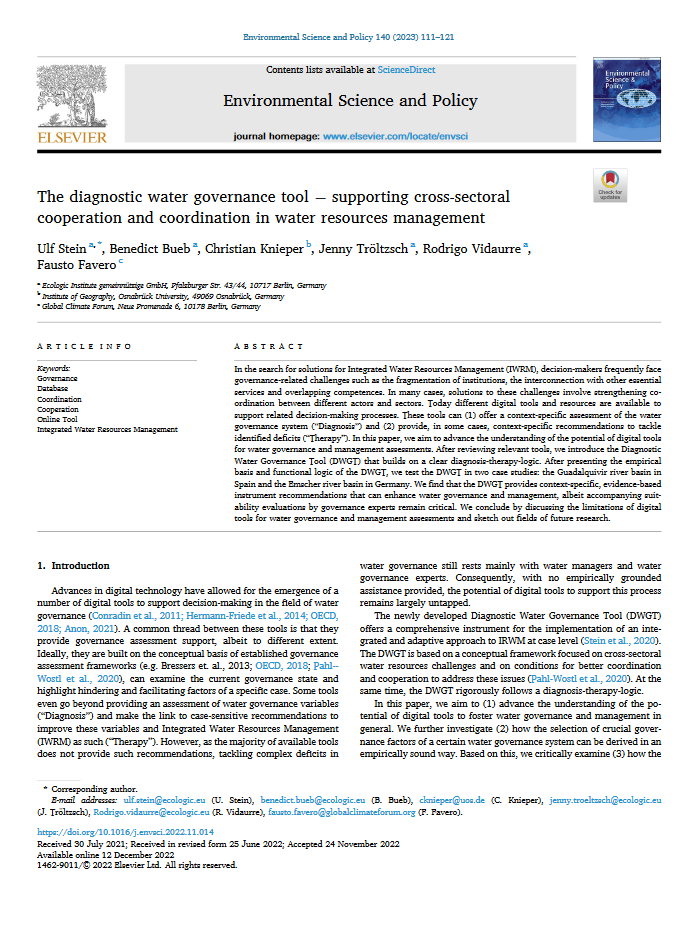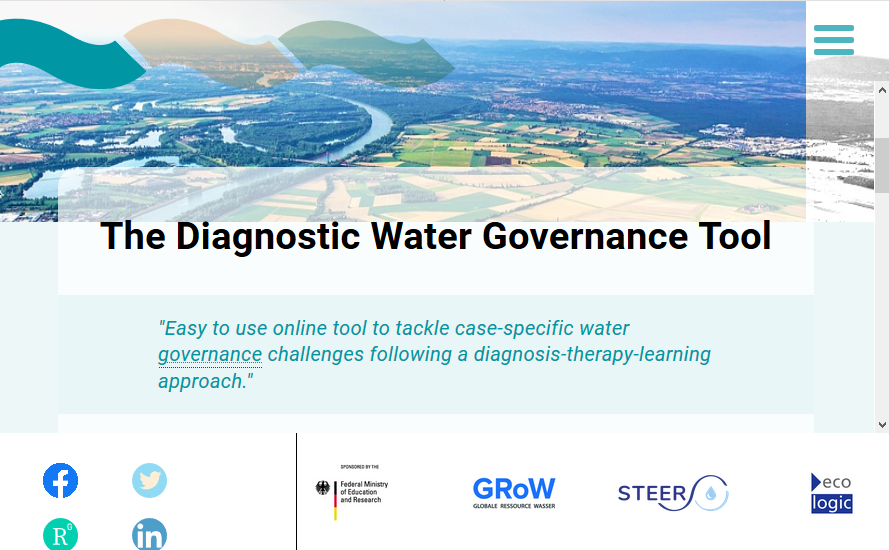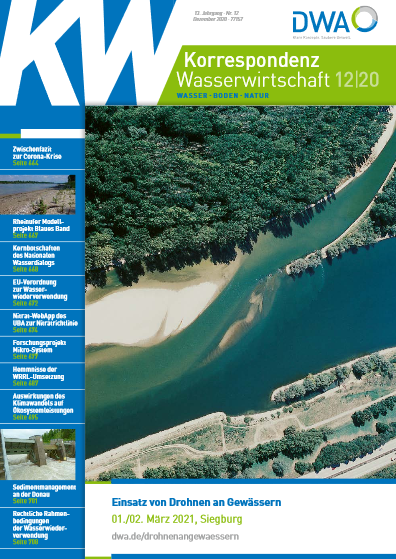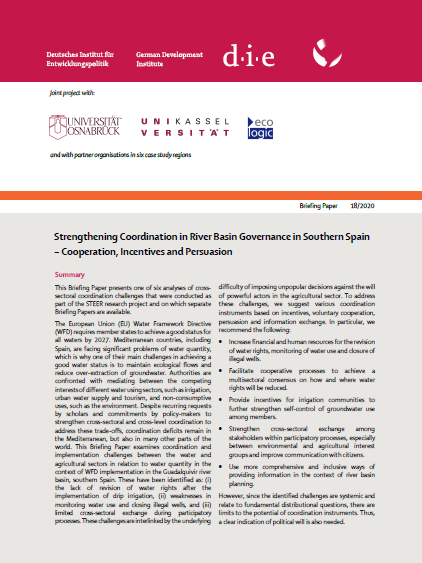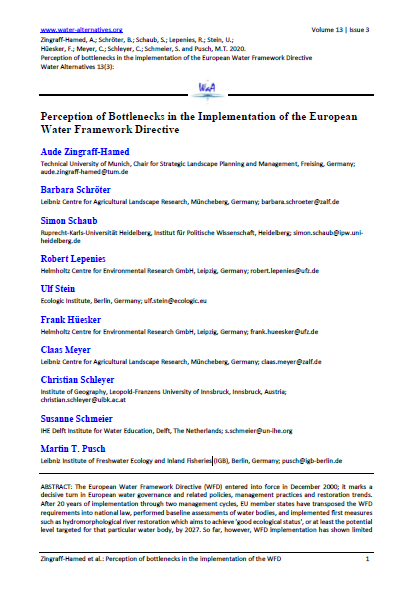Coordination and Cooperation of Water Management, Nature Conservation and Open Space Development in the Emscher Restoration
- Publication
- Citation
Tröltzsch, Jenny et. al. 2020: Coordination and Cooperation of Water Management, Nature Conservation and Open Space Development in the Emscher Restoration. German Development Institute (DIE): Bonn.
This paper constitutes one of six analyses of cross-sectoral challenges in water governance. These have been conducted as part of the STEER research project and results are published in separate analyses and position papers.
The Emscher River restoration project reveals wide-ranging usage conflicts associated with the long-term revitalisation of the water system for the development of the natural environment. The Emscher was converted into an open wastewater channel in the late 19th Century. With mining activity having ceased in the Ruhr region, it has been possible to discharge wastewater via subterranean sewers and improve the environmental quality of the water courses. This modification process requires coordination between sectors and local authorities, particularly the water, open space development and nature conservation sectors.
The completed governance analysis shows that coordination in the Emscher catchment area is already effective, be it between stakeholders at local, regional and national level (vertical), or between the different sectors (horizontal). Examples include forums for dialogue between local authorities, voluntary environmental monitoring during construction, financing options for green infrastructure projects and a GIS (geographic information system)-based tool facilitating coordination between different public departments. The regional water board, the Emschergenossenschaft (Emscher Cooperative), initiates many processes that combine water course modification with urban planning and landscape architecture.
There is room for improvement when it comes to involving citizens at an early stage and on a comprehensive basis in all planning and implementation processes in order to increase acceptance among stakeholders. Planning processes should also be characterised by a higher degree of flexibility. The following recommendations arise from the analysis:
- Coordination at regional level has proven to be a success factor. This involves regular dialogue between regional stakeholders.
- The cooperative principle, which involves the region’s cities and companies as associates within the water board, is highly conducive to regional coordination.
- Working groups operating across sectors and local authorities have also emerged as a useful instrument.
- The concept of ecosystem services could also be useful for identifying usage conflicts at an early stage and finding viable solutions and/or compromises.
